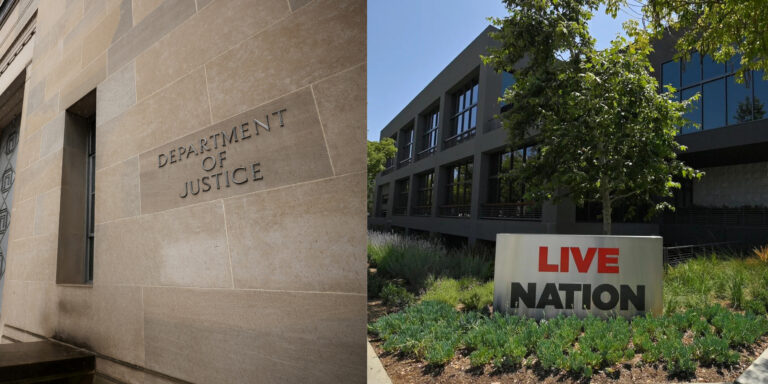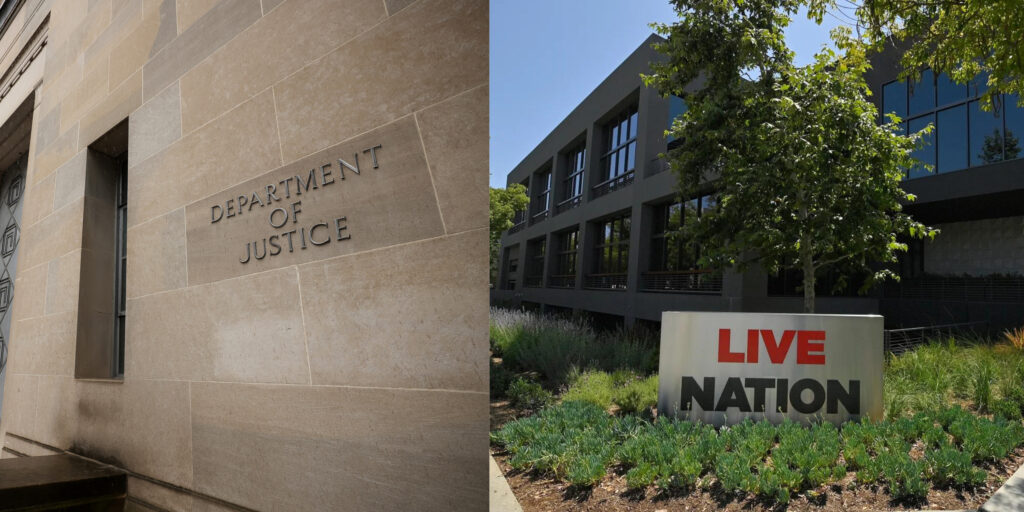
The lawsuit aims at concerns over anti-competitive practices

In a landmark move, the U.S. Department of Justice (DOJ) has filed an antitrust lawsuit against Live Nation Entertainment Inc., the global entertainment company known for its dominance in live event promotion and ticket sales. This lawsuit, which aims to address concerns over anti-competitive practices, marks a significant step in regulating the entertainment industry and ensuring fair competition.
Live Nation Entertainment was formed in 2010 through the merger of Live Nation and Ticketmaster. Since then, the company has grown into a behemoth, controlling a significant share of the live event market. Live Nation operates in various sectors, including event promotion, venue management, and ticketing, with its Ticketmaster subsidiary being the leading ticket sales platform in the United States.
The DOJ’s lawsuit alleges that Live Nation has engaged in practices that stifle competition and harm consumers. Key allegations include:
- Monopolistic Control: The DOJ contends that Live Nation has used its dominant position to control a disproportionate share of the live event market, limiting opportunities for competitors to thrive.
- Anti-competitive Practices: The lawsuit accuses Live Nation of engaging in exclusionary practices, such as coercing venues to use Ticketmaster exclusively and retaliating against those that choose other ticketing services.
- Price Manipulation: There are claims that Live Nation’s practices have led to higher ticket prices for consumers, as the lack of competition reduces pressure to keep prices affordable.
The DOJ’s action against Live Nation is poised to have far-reaching implications for the live entertainment industry. If successful, the lawsuit could lead to:
- Increased Competition: Breaking up Live Nation’s monopolistic hold could pave the way for smaller promoters and ticketing services to enter the market, fostering a more competitive environment.
- Lower Ticket Prices: With more competitors in the market, consumers could benefit from lower ticket prices and better service as companies vie for their business.
- Regulatory Changes: The case may set a precedent for stricter antitrust enforcement in the entertainment industry, encouraging fairer business practices across the board.
In response to the lawsuit, Live Nation has vehemently denied the allegations, stating that their business practices comply with antitrust laws and benefit consumers by providing a comprehensive and efficient ticketing and event management service. The company argues that their integrated model offers better value and convenience to both venues and fans.
The lawsuit has elicited a range of reactions from industry stakeholders. Smaller promoters and ticketing companies have welcomed the DOJ’s action, hoping it will level the playing field and create new opportunities for growth. Some artists and venue operators have expressed concerns about potential disruptions to their operations, while others support the move as a step towards fairer business practices. Fans have shown mixed reactions, with some hopeful for lower ticket prices and improved service, while others are wary of potential changes to their concert-going experience.
The DOJ’s antitrust lawsuit against Live Nation represents a pivotal moment for the live entertainment industry. As the case unfolds, it will be closely watched by industry insiders, competitors, and consumers alike. The outcome could reshape the landscape of live entertainment, fostering a more competitive market and ultimately benefiting music lovers and event-goers across the country.
The post Department of Justice Files Antitrust Lawsuit Against Live Nation and Ticketmaster first appeared on The Rock Revival.